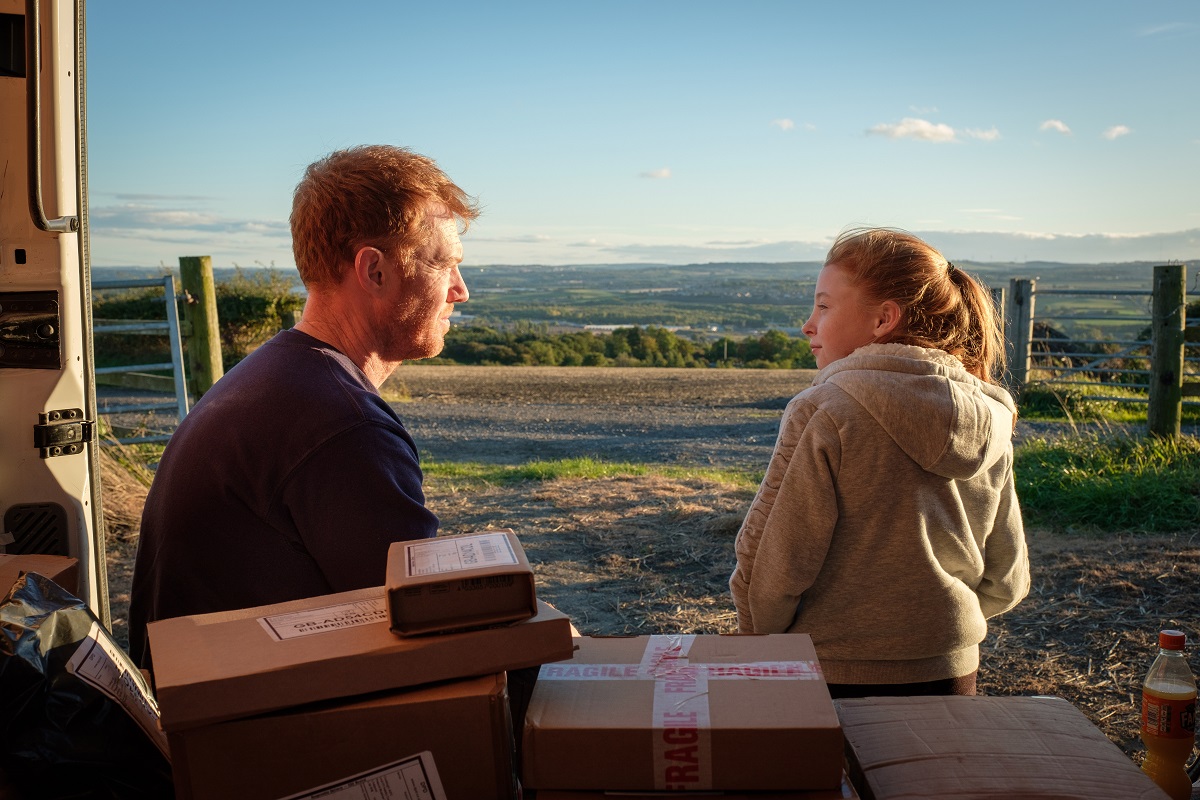From the groundbreaking Kes in 1969 to Sorry We Missed You 50 years later, the films of Ken Loach have tackled real-life social issues head-on, earning the 84-year-old director two Palmes d’Or at Cannes. His latest work deals with the problem of zero-hour contracts, giving workers no guarantee of regular employment. This hand-to-mouth existence affects many families across the UK, including the Turners, Ricky and Abbie, the main characters in the latest Loach film.
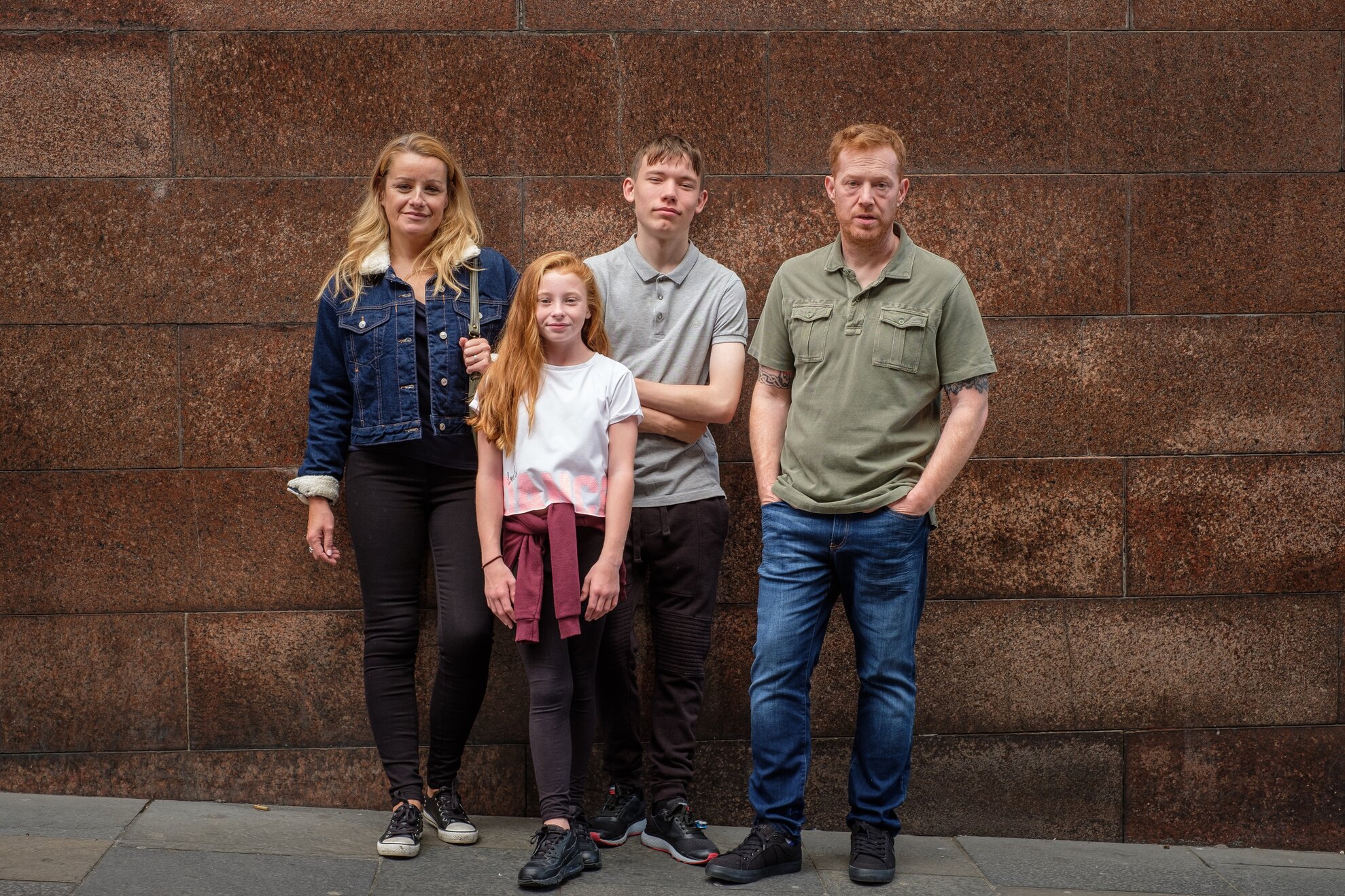
Debbie Honeywood, who plays Abbie, describes what it’s like to work with the acclaimed director – and why his films resonate with so many in Europe.
We Love Budapest: Please tell us a little bit of about yourself – what were you doing before this film? In fact, what were you doing when you heard you got the part?
Debbie Honeywood: This was my first acting role and before I was working in a local high school as a learning mentor... which has been my main career for over 20 years. I answered an advert as I thought I would be an extra/supporting artist which I had done before. Acting was never something I thought I would end up doing, It turns out I love it!
When I heard I got a part in the film, I was on a camping holiday with friends and couldn’t tell them, only my husband. I didn’t find out I had the main role till a few weeks later – and it didn’t really sink in until the first day of filming.
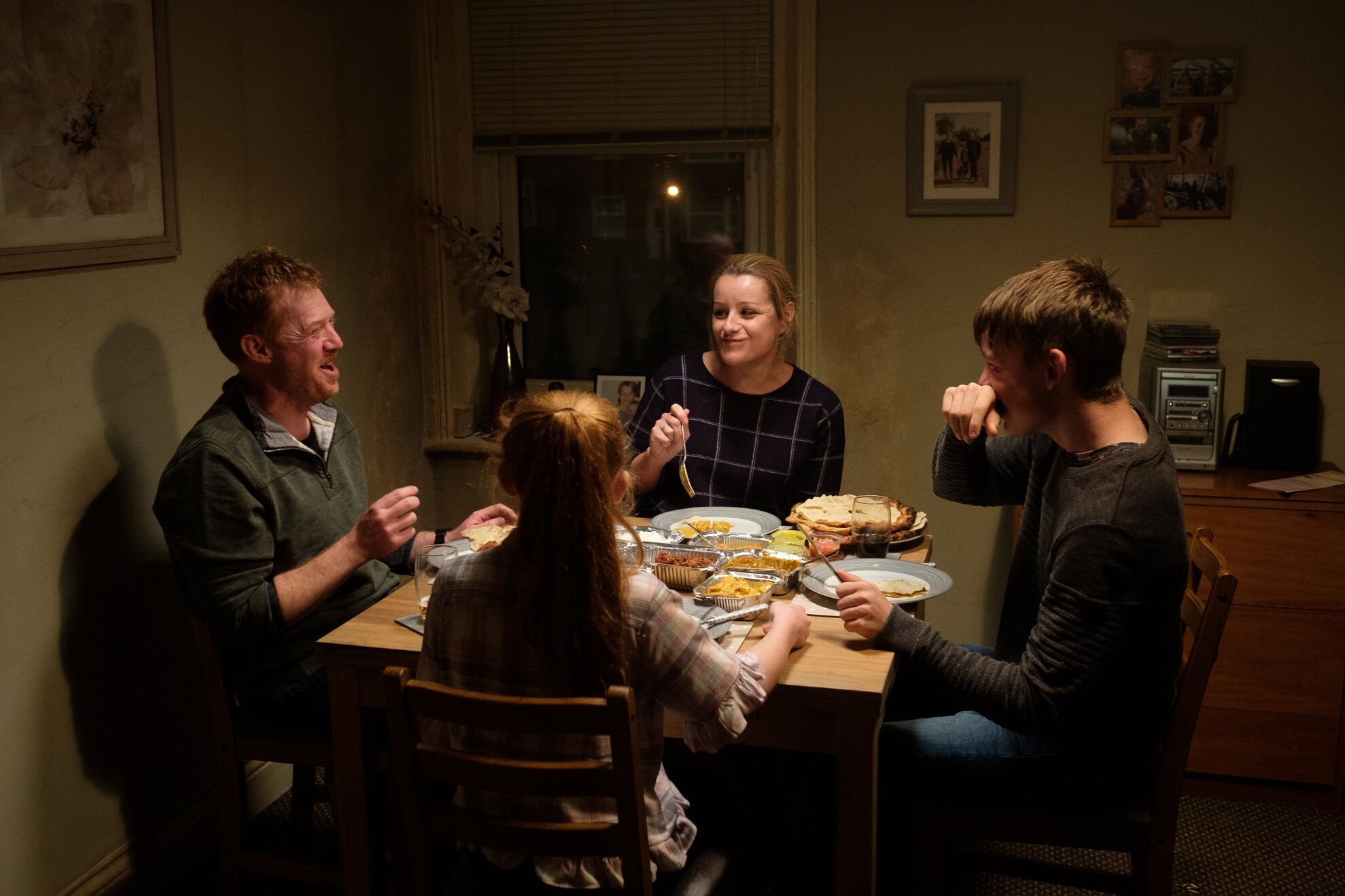
WLB: How was it working with Ken Loach and the crew? How much experience had you had on set before this production?
DH: None!! Ha ha… Ken and the crew are just amazing! You feel like part of the family and the team. Obviously, I was terrified but everyone puts you at ease and it didn’t take long to feel comfortable. Ken picks his crew not only on their huge talent but how they are with people. I feel very lucky to have met such lovely, creative people.
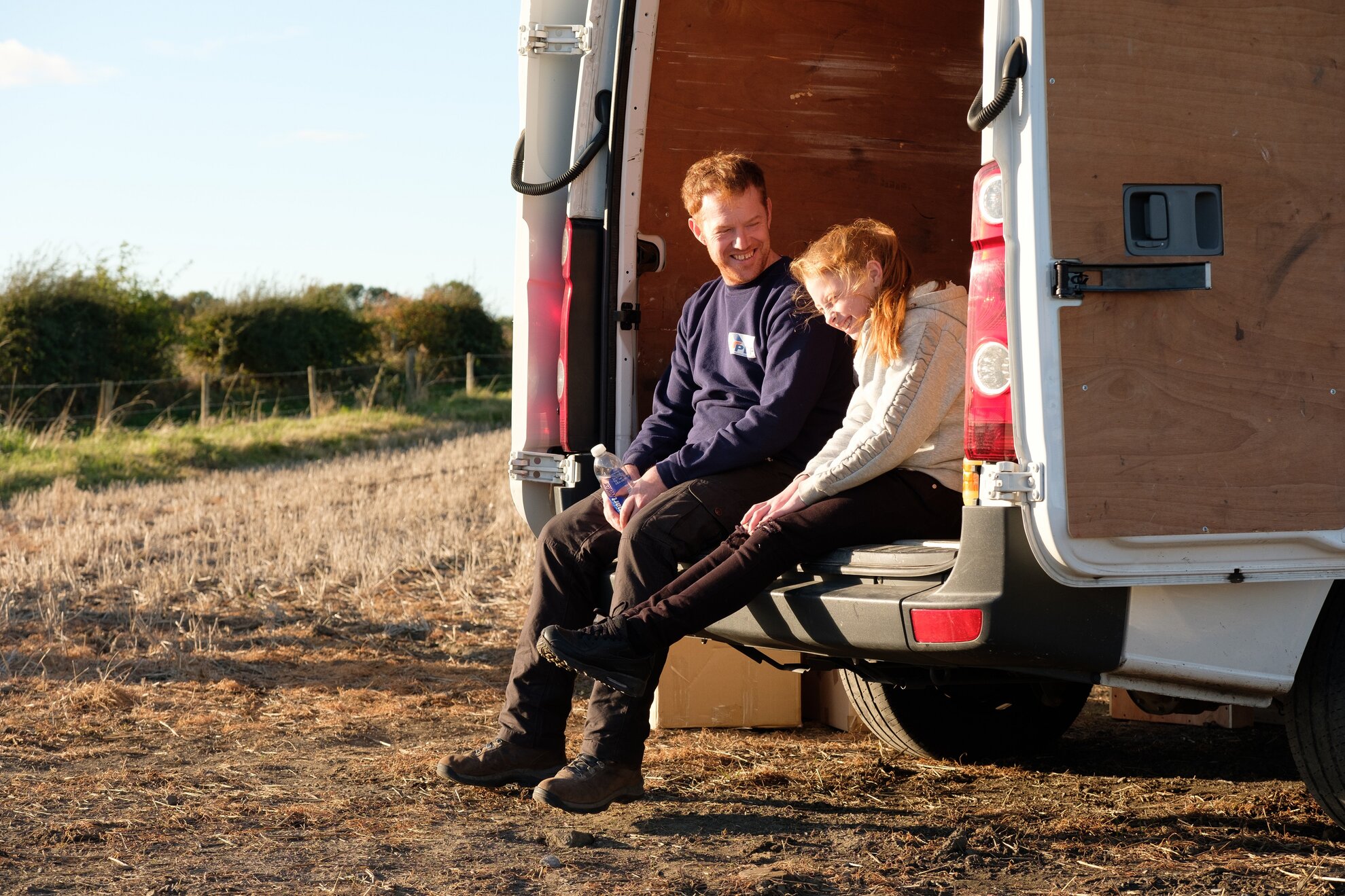
WLB: How much did knowledge of Ken Loach’s previous films help with working on this one?
DH: When I was in high school, we read A Kestrel for a Knave [the novel on which the classic film Kes was based]. It was one the first times I really engaged with a story... and probably one of the first times I behaved in class! I remember the wording, the language, and then my older brothers showed me the film and I thought it was amazing, seeing and hearing working-class people on screen.
My family are huge fans, so they were just as excited as I was. With no experience of working on film, I wasn’t sure what to expect but the way Ken makes films made sense, doing it chronologically. In the audition I had to improvise which I really enjoy!
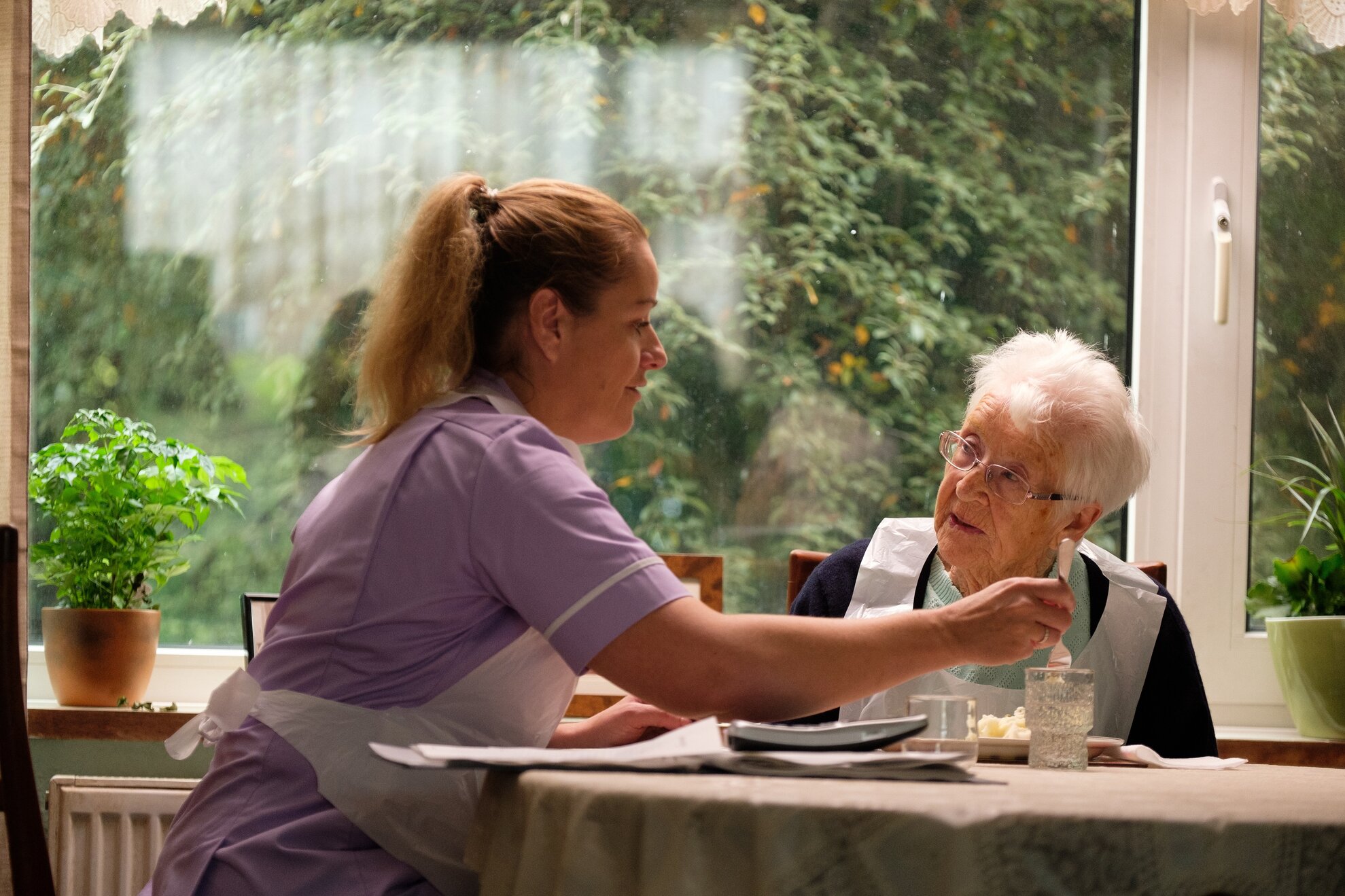
WLB: Please tell us a little about your character, Abbie.
DH: Abbie is a natural mother. She cares for everyone and puts them all first. She is strong but delicate. She wants the best for her family and her relationship, and takes pleasure in the little things. She feels guilty for not being at home and feels guilty for not being at work – she gives a lot.
She is softly spoken and gentle... nothing like me!
"Ken’s films show the truth of people’s lives. Working-class people, how things affect them."
WLB: Many of Ken Loach’s films are deeply rooted in everyday life in England – and yet they strike a chord with European audiences, not least here in Hungary. Why do you think that is?
DH: Ken’s films show the truth of people’s lives. Working-class people, how things affect them. Our film is the story of how the unsteady work of the gig economy can affect the family unit, and people’s mental health and relationships. I travelled around Europe presenting the film and it has struck a chord with all audiences. Parents connected to it the way people working in similar fields did, too. He portrays the ordinary day to day of life with all the emotions and humour there is. Everyone can connect to that! It has been well received all over the world. Working-class people need a voice and he gives them one through all his films.
"Last year was crazy, travelling to promote the movie, going to Cannes and the BAFTAS. I’ve been getting recognised a bit more I still can’t get used to it!"
WLB: It’s been a year now since the film – apart from the lockdown, how has your life changed? What other projects have you worked on?
DH: My life hasn’t really changed! Last year was crazy, travelling to promote the movie, going to Cannes and the BAFTAS. So with lockdown it’s quieter... I’ve been getting recognised a bit more I still can’t get used to it!
Last December, I played the mother in a BBC drama called Responsible Child. A drama based on a real murder case, a totally different mam with lots of her own issues. It was really challenging but I’m very proud of it.
Lockdown obviously has slowed things down so will see what happens.
I still have my job as a youth worker in the community, so hoping to get back to that. And I have my husband and two grown-up kids, lovely friends and family who keep me grounded. I have come to this career very late in the game. I’m 47, so my feet are firmly planted on the ground. Excited to see what happens next though!
Sorry We Missed You (Sajnáljuk, nem találtuk otthon)
Puskin cinema
District V. Kossuth Lajos utca 18
Thursday, 23 July, 4pm & 9pm
Admission: 990 forints
Screened in English with Hungarian subtitles
